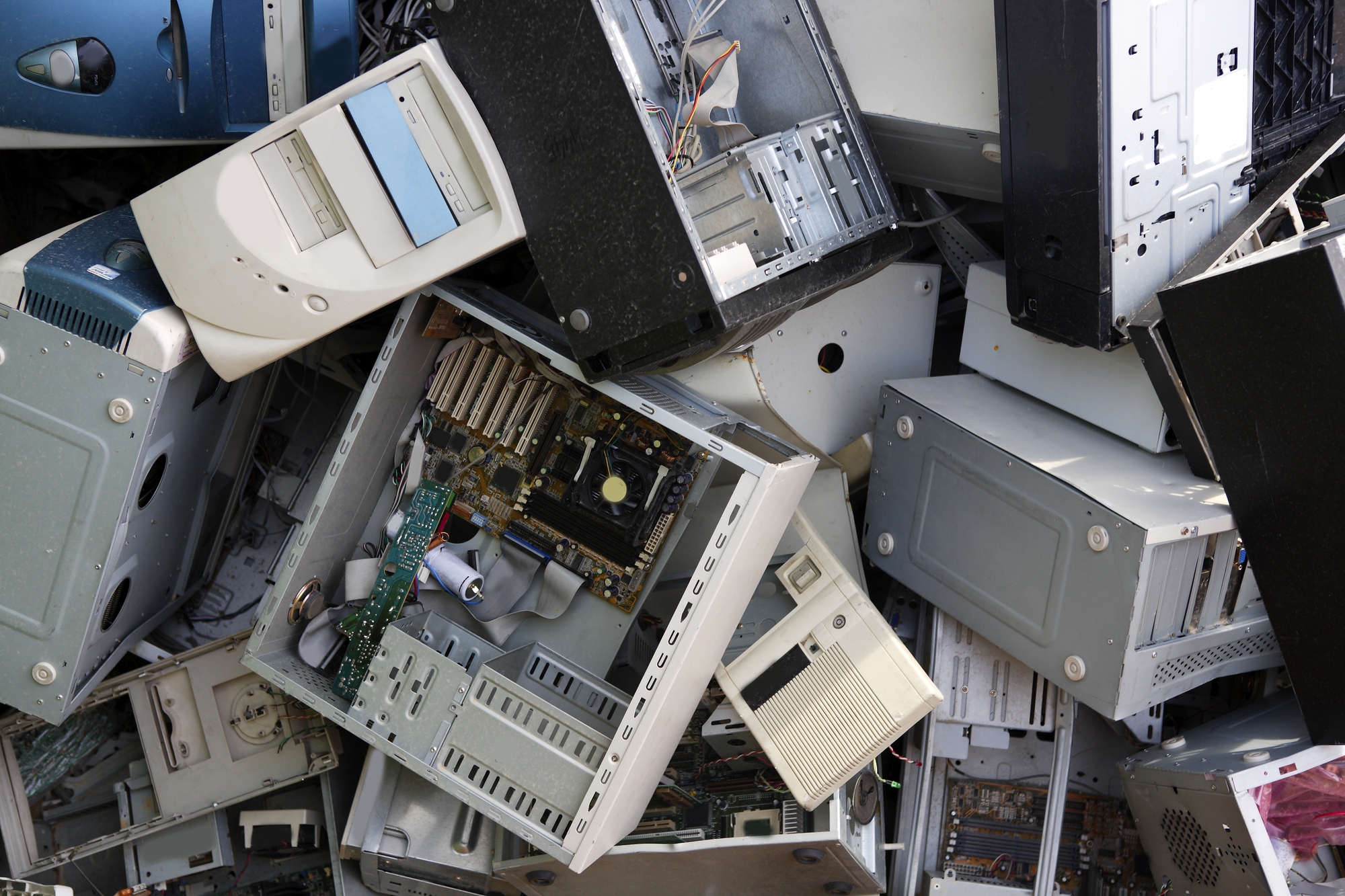What do you do when your office computer isn’t fast enough, or your conference room monitor isn’t big enough, or your old black and white printer just isn’t cutting it anymore?
In the modern workplace, technology upgrades are fast and frequent. So how can companies limit the environmental impact of their out-to-pasture devices? On average, Americans throw away around 9.4 million tons of electronics every year. This includes phones, laptops, printers, scanners, keyboards, cameras, tablets…the works. And only 12.5 percent of all e-waste in the US is currently recycled.
As landfill mounds of discarded hardware reach impressive new heights, it’s clear that e-recycling is a solution to one of the world’s fastest-growing trash streams. So what should your business know about e-recycling? And what happens when you fail to dispose of your old technology properly?
Your Data is At-Risk
By simply tossing your old smartphone in the waste bucket, you’re putting your private data at risk. It doesn’t matter that you have a 6-digital passcode or fingerprint ID, or that your trash gets taken straight to the local landfill. While basic security measures might stop the more amateur criminal, some pros make a living off of accessing private data.
If you think your hardware is safe because you live in a small town, or because no one could ever want your old phone, think again. Information is power after all, and an abandoned hard drive can host all sorts of valuable information that can be sold to the highest bidder. Banking information, addresses, contracts, passwords, personal photos — they can all be held ransom by cybercriminals near or far.
The best way to avoid this is by wiping your devices and making sure there’s no data there at all. Some e-recyclers can help, but it’s ultimately your responsibility to keep your private data from floating around in the ether.
Remember to backup everything first, either to a new computer, hard drive, or cloud. Then go beyond deleting your old files — make sure your hard drive is fully wiped. There are software options to help you do this, or you can give us a call to get help. On old cell phones, you can follow your manufacturer’s instructions for a factory hard reset and then cut your old SIM card in half.
Environmental Waste Builds Up
The Environmental Protection Agency (EPA) has concerns about e-waste — namely that it’s dangerous when improperly disposed of. Many devices house toxic substances and heavy metals like cadmium, mercury, and lead. These can leak into soil and waterways, contaminating air, water, and food.
E-recycling can save landfill space, and also ensure that items are disposed of properly. Oftentimes, hardware is broken down by recyclers into usable parts and then re-sold to manufacturers. High-value materials like copper, gold, and aluminum can be melted down and reused for new devices, reducing the need for raw materials. This loop is a win-win for the environment and the availability of resources for the future.
To wrap it up in the words of Oregon E-Cycles…e-recycling projects our health, environment, and open spaces by keeping hazardous materials out of air, soil, and water. Opting to e-recycle results in less pollution, fewer environmental toxins, and lower production cost for new devices.
Local Resources for E-Recycling
Valley View Transfer Station, Ashland
Southern Oregon Sanitation, Grants Pass
Klamath County Solid Waste Landfill, Klamath Falls
Afterbits, Medford, OR
Allied Environmental Services, White City, OR
Stop E-Waste Before it Happens
Of course, the best way to avoid dealing with e-waste is by circumventing wasteful electronics in the first place. It all starts with your technology purchases, and finding the best options for your company’s needs. Next time you’re in the market for updated office equipment, ask your IT provider which brands have the lowest return rates, which ones will best suit your unique needs, and which models they repair the least.
And remember that older doesn’t always mean obsolete. Have your IT service provider evaluate the cost-benefits of repairing or upgrading your tech. Sometimes a simple fix can go a long way. Easy repairs can save you some cash, and also keep you out of the backup-delete-recycle-repurchase loop a bit longer.


